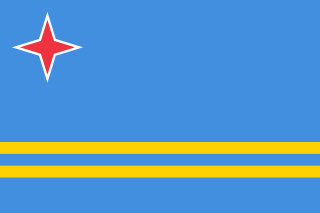
Aruba, officially the Country of Aruba, is a constituent country within the Kingdom of the Netherlands, in the southern Caribbean Sea 29 kilometres (18 mi) north of the Venezuelan peninsula of Paraguaná and 80 kilometres (50 mi) northwest of Curaçao. In 1986, it became a constituent country within the Kingdom of the Netherlands and acquired the formal name the Country of Aruba.

The Dutch West India Company or WIC was a chartered company of Dutch merchants as well as foreign investors, formally known as GWC. Among its founders were Reynier Pauw, Willem Usselincx (1567–1647), and Jessé de Forest (1576–1624). On 3 June 1621, it was granted a charter for a trade monopoly in the Dutch West Indies by the Republic of the Seven United Netherlands and given jurisdiction over Dutch participation in the Atlantic slave trade, Brazil, the Caribbean, and North America.

Suriname, officially the Republic of Suriname, is a country in northern South America, sometimes considered part of the Caribbean and the West Indies. Suriname is a developing country with a medium level of human development; its economy is heavily dependent on its abundant natural resources, namely bauxite, gold, petroleum, and agricultural products. Suriname is a member of the Caribbean Community (CARICOM), the United Nations, and the Organisation of Islamic Cooperation.

Slavery is the ownership of a person as property, especially in regards to their labour. Slavery typically involves compulsory work, with the slave's location of work and residence dictated by the party that holds them in bondage. Enslavement is the placement of a person into slavery, and the person is called a slave or an enslaved person.

The Pilgrims, also known as the Pilgrim Fathers, were the English settlers who travelled to North America on the ship Mayflower and established the Plymouth Colony in Plymouth, Massachusetts. The Pilgrims' leadership came from the religious congregations of Brownists or Separatists, who had fled religious persecution in England for the tolerance of 17th-century Holland in the Netherlands.
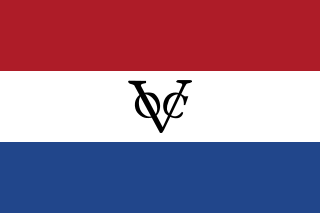
The United East India Company, commonly known as the Dutch East India Company, was a chartered trading company and one of the first joint-stock companies in the world. Established on 20 March 1602 by the States General of the Netherlands amalgamating existing companies, it was granted a 21-year monopoly to carry out trade activities in Asia. Shares in the company could be purchased by any citizen of the United Provinces and subsequently bought and sold in open-air secondary markets. The company possessed quasi-governmental powers, including the ability to wage war, imprison and execute convicts, negotiate treaties, strike its own coins, and establish colonies. Also, because it traded across multiple colonies and countries from both the East and the West, the VOC is sometimes considered to have been the world's first multinational corporation.
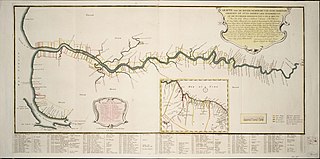
Demerara is a historical region in the Guianas, on the north coast of South America, now part of the country of Guyana. It was a colony of the Dutch West India Company between 1745 and 1792 and a colony of the Dutch state from 1792 until 1815. It was merged with Essequibo in 1812 by the British who took control. It formally became a British colony in 1815 until Demerara-Essequibo was merged with Berbice to form the colony of British Guiana in 1831. In 1838, it became a county of British Guiana until 1958. In 1966, British Guiana gained independence as Guyana and in 1970 it became a republic as the Co-operative Republic of Guyana. It was located around the lower course of the Demerara River, and its main settlement was Georgetown.

The Zong massacre was a mass killing of more than 130 enslaved African people by the crew of the British slave ship Zong on and in the days following 29 November 1781. The William Gregson slave-trading syndicate, based in Liverpool, owned the ship as part of the Atlantic slave trade. As was common business practice, they had taken out insurance on the lives of the enslaved Africans as cargo. According to the crew, when the ship ran low on drinking water following navigational mistakes, the crew threw enslaved Africans overboard.

The island of Taiwan, also commonly known as Formosa, was partly under colonial rule by the Dutch Republic from 1624 to 1662 and from 1664 to 1668. In the context of the Age of Discovery, the Dutch East India Company established its presence on Formosa to trade with the Ming Empire in neighbouring China and Tokugawa shogunate in Japan, and to interdict Portuguese and Spanish trade and colonial activities in East Asia.

Berbice is a region along the Berbice River in Guyana, which was between 1627 and 1792 a colony of the Dutch West India Company and between 1792 and 1815 a colony of the Dutch state. After having been ceded to the United Kingdom of Great Britain and Ireland in the latter year, it was merged with Demerara-Essequibo to form the colony of British Guiana in 1831. It became a county of British Guiana in 1838 till 1958. In 1966, British Guiana gained independence as Guyana and in 1970 it became a republic as the Co-operative Republic of Guyana.
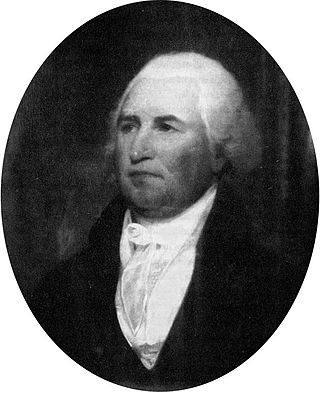
Edward Bartholomew Bancroft was an American physician and chemist who became a double agent, spying for both the United States and Great Britain while serving as secretary to the American commission in Paris during the American Revolutionary War.

Essequibo was a Dutch colony in the Guianas and later a county on the Essequibo River in the Guiana region on the north coast of South America. It was a colony of the Dutch West India Company between 1616 and 1792 and a colony of the Dutch state from 1792 until 1815. It was merged with Demerara in 1812 by the British who took control. It formally became a British colony in 1815 until Demerara-Essequibo was merged with Berbice to form the colony of British Guiana in 1831. In 1838, it became a county of British Guiana till 1958. In 1966, British Guiana gained independence as Guyana and in 1970 it became a republic as the Co-operative Republic of Guyana. It was located around the lower course of the Essequibo River.

The 1740 Batavia massacre was a massacre and pogrom of ethnic Chinese residents of the port city of Batavia, Dutch East Indies, in the Dutch East Indies. It was carried out by European soldiers of the Dutch East India Company and allied members of other Batavian ethnic groups. The violence in the city lasted from 9 October 1740, until 22 October, with minor skirmishes outside the walls continuing late into November that year. Historians have estimated that at least 10,000 ethnic Chinese were massacred; just 600 to 3,000 are believed to have survived.

The Cassard expedition was a sea voyage by French Navy captain Jacques Cassard in 1712, during the War of the Spanish Succession. Targeting English, Dutch, and Portuguese possessions, he raided and ransomed the colonies of Cape Verde, Sint Eustatius, and Curaçao—factories, depots, and seasoning camps used in the Atlantic slave trade. He also raided and ransomed Montserrat, Antigua, Surinam, Berbice, and Essequibo—wealthy sugar-producing colonies in the Caribbean whose economies were based on the exploitation of slave labor.

Pomeroon is the name of a former Dutch plantation colony on the Pomeroon River in the Guyana region on the north coast of South America. After early colonization attempts in the late 16th century were attacked by Spaniards and local Indians, the original inhabitants fled the interior of Guyana, founding the colony of Essequibo around Fort Kyk-Over-Al shortly after. A second, and more serious attempt at colonization started in 1650, but was ultimately unsuccessful, as French privateers destroyed the colony in 1689. In the late 18th century, a third attempt of colonization was started, this time under the jurisdiction of the Essequibo colony.

Netherlands–Suriname relations refers to the current and historical relations between the Netherlands and Suriname. Both nations share historic ties and a common language (Dutch) and are members of the Dutch Language Union.
Joost Berman was a Dutch lawyer, judge, politician, poet, nonfiction writer, and editor.
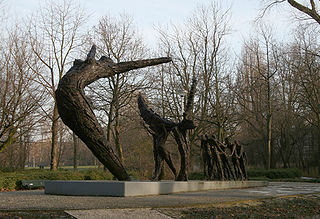
The history of slavery in the Netherlands dates back to the period of classical antiquity. During the early modern period, Dutch slave traders bought and sold over 1.6 million enslaved people. The Netherlands abolished Dutch involvement the Atlantic slave trade in 1814 under diplomatic pressure from the United Kingdom, but slavery would continue to exist in the Dutch colonial empire until 1863.

The Society for Navigation on Essequibo and adjacent Rivers was a Dutch organization headquartered in Middelburg, founded in 1771 and disestablished in 1788. The objective of the society was to equip ships to Essequibo, which made the SNER a shipping company that exclusively transported goods.
















